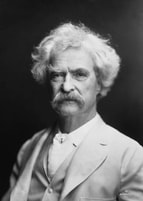 Mark Twain (1835-1910) Mark Twain (1835-1910) I recently saw an interesting meme on the internet which is attributed to American humorist Samuel L. Clemens, better known by his pen/stage name of Mark Twain: "If voting made any difference, they wouldn't let us do it." Ironically, as I looked further to research this quote and gain context to when, and why, Twain made this clever remark, I found that he really didn't say it at all. The internet has simply inaccurately attached it to him, but Twain historians say "no way." In fact, Mark Twain was a key proponent of the election process. In a 1905 interview in Boston, he is said to have told the press: "In this country we have one great privilege which they don't have in other countries. When a thing gets to be absolutely unbearable the people can rise up and throw it off. That's the finest asset we've got-the ballot box." Apparently the quote originated in the 1960s or 1980s, but it is a complicated web of potential individuals that may have been the source. So again, leave it to the mainstream media and social media to perhaps lead us astray. I'm thankful I looked further into the subject, because it is always good to check more than one source. And therein lies the moral of the story, make the effort to seek the truth whatever side of politics you are on. 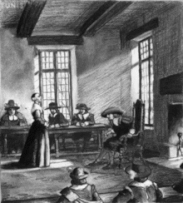 Margaret Brent speaking to the MD Assembly by Edwin Tunis Margaret Brent speaking to the MD Assembly by Edwin Tunis No matter the source, the supposed Twain quote at hand has particular historical relevance this year, because an important part of American society, roughly half, wasn't allowed to participate in the political election process until 1920. This group was women. The mainstream media of the day, along with our local newspaper of record, did a great job of telling the women's suffrage story and encouraged the fairer sex to register and get to the polls on November 2nd, 1920 once they had achieved voting equality. The Covid pandemic and racial injustice/police reform riots have certainly distracted away interest for proper commemoration of this monumental achievement. Again, its hard to fathom this was possible, as are so many things in our history when viewed through the modern lens of today. To further the context, black males had already been given given the right to vote with the ratification of the 15th Amendment to the Constitution. This occurred 50 years before women were afforded the chance! Interestingly, Maryland can trace its activism for woman suffrage all the way back to its very earliest days as a British colony. In 1648, Margaret Brent (1601-1671), a lawyer and executor of Governor Leonard Calvert’s estate, petitioned the Maryland General Assembly for a vote in the governing body. She argued that as a landowner, she was due the same rights that male Marylanders enjoyed. The Assembly rejected her demand. Frederick and the Vote Not a whole lot of work has been done on the local level in chronicling the subject of the women's suffrage movement as it pertains to Frederick. That is until early last year. In her Preservation Matters series, the talented author and researcher on all things local preservation, Lisa Mroszczyk, wrote about the subject in her regular column in the Frederick News-Post. This article appeared on March 10th, 2019 under the title of "Local women's suffrage movement coalesced in early 20th century." Here is a portion of that amazing article: 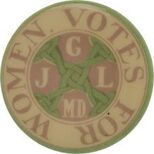 In the summer of 1910, Miss M.L. Manning, field secretary of the Just Government League of Maryland, came to Frederick and went from house to house interviewing the city’s men and women and recording her impressions. The Just Government League of Maryland was founded in 1909 by Edith Houghton Hooker as an affiliate of the National American Woman Suffrage Association. Manning was internationally known for her work for women’s suffrage in her native Australia. It was reported that Miss Manning stopped in at 205 E. Second St., a boardinghouse operated by Margaret Young, in September. It is unknown if Manning simply stayed for a time at the boardinghouse while she worked in Frederick or if Mrs. Young or one of her boarders was a supportive contact for the local suffrage effort. It appears that Miss Manning concluded her Frederick tour with a lecture on Australia, including progressive suffrage legislation, in Kemp Hall on Sept. 16, 1910. Kemp Hall was the site of another suffrage lecture in 1913 by Miss Alice Carpenter, another suffragist prominent at the national level. On Nov. 28, 1910, Edith Houghton Hooker, founder and president of the Just Government League, came to Frederick to speak to the Frederick Female Seminary Alumnae and the Art Club at the YMCA and to plead for the establishment of a local branch. Once the local branch was formed early the following year, the YMCA would become the site of many of the chapter’s meetings over the ensuing decade. The YMCA stood at the southeast corner of Church and Court streets (it was destroyed by fire in the 1970s). The Frederick branch of the Just Government League was formerly established in one of the classrooms at the Women’s College, which was housed at this time in Winchester Hall, East Church Street, in March 1911. Twelve directors were appointed to conduct monthly meetings and about 50 women had demonstrated interest in membership. On Oct. 6, 1911, the Just Government League hosted the Rev. Dr. Anna H. Shaw, president of the National Suffrage Association and prominent leader in the movement. She spoke in the Women’s College Hall to a large audience after being introduced by Miss Florence Trail. 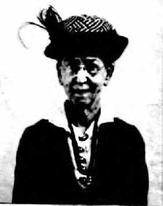 Florence Trail (1921 passport photo) Florence Trail (1921 passport photo) Florence and Bertha Trail, daughters of Charles E. Trail, were active in the local suffrage movement from the founding of the local branch of the Just Government League until the 19th Amendment was ratified in 1920. Florence served as president of the branch for many years and the sisters hosted many suffrage meetings at their home at 106 E. Church St. For example, on Sept. 3, 1913, Elizabeth King Ellicott, prominent Maryland suffragist and president of Equal Suffrage League of Baltimore, spoke to a well-attended meeting in the sisters’ parlor to kick off her campaign through the “mountain section of the State.” On May 2, 1914, the sisters hosted a meeting on the lawn of their home as part of a nationwide demonstration in support of the Bristow-Mondell Resolution where Baltimore suffragist Miss Emma Harris Jamison made a spirited address. They then hosted Philadelphia suffragist Mrs. Anna (Trail) Harding on March 13, 1916. Mrs. Harding was a native of Frederick and sister of Florence and Bertha. On June 4, 1919, the 19th Amendment to the U.S. Constitution was passed and sent to the states for ratification. The county courthouse, in the building that now serves as City Hall, made another appearance in the local suffrage movement when it served as the site of a woman’s suffrage rally on Dec. 16, 1919. U.S. Sen. Kenneth McKellar, of Tennessee, a strong advocate for women’s voting rights, was the featured speaker, along with Miss Maud Younger, a prominent suffragist from California and leader in the National Women’s Party. A resolution was adopted calling for the county’s legislators to vote for ratification of the amendment. On Feb. 20, 1920, Maryland voted against ratification. The following May, Florence Trail announced what was likely the last meeting of the Frederick Just Government League, held at the Frederick Armory, since 35 states had since ratified the amendment. By August, the required 36 states ratified the amendment, giving women the right to vote. Maryland did not ratify the amendment until 1941. Weeks after the ratification date of August 18th, groups in Frederick held additional meetings to organize according to political party. Local leaders urged women neighbors to do their duty in voting. Frederick's newspaper editor also did his part to positively influence ladies to register and exercise the new right given them. He also told of the corruption involved in the process, something that could be duly countered by an informed, participating electorate. However, an article in early September told the story of at least one well-known female citizen who had decided to take a pass on the election booth. She would not vote in a life that spanned a century, saying that there was no reason to start now. 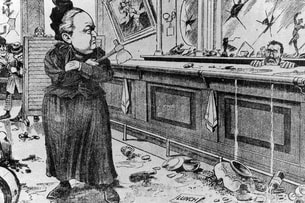 One of the interesting things about this time period in our history was the strength and momentum of the temperance movement and its effects on national politics. This was, and still is, a movement aimed to curb the consumption of alcohol. It had a large influence on American politics and American society in the nineteenth and twentieth centuries, a time of demographic and economic change in America. Urbanization, industrialization, the rise of the women’s rights and woman suffrage movements, progressivism, immigration and World War I all contributed to the society that voted to go “dry.” Feminists like Susan B. Anthony supported prohibition because the abuse of alcohol so often led to violence against women. Anti-immigration proponents associated alcohol with Irish and German immigrants. The Anti-Saloon League fought political opposition from brewers by connecting German beer with treason in the public imagination. The Eighteenth Amendment was passed by Congress in 1917, ratified in 1919, and went into effect at 12:01 am on January 17, 1920. The temperance movement had triumphed. Their victory was short-lived, however, as many Americans made and drank alcohol in violation of the law. Bootlegging and organized crime stepped in to profit from the market for spirits, while law enforcement lagged behind the rise in criminal behavior. Prohibition was unsustainable. In 1933 the Twenty-First Amendment would eventually repeal the Eighteenth, and manufacture, sale and consumption of alcohol again became legal in the United States. In case you were curious, the first election after the ratification of the 19th Amendment (which granted women the constitutional right to vote) was held on Tuesday, November 2nd, 1920. In this, the 34th quadrennial presidential election, Republican Senator Warren G. Harding from Ohio defeated Democratic Governor James M. Cox of Ohio. In looking closer at this election of 1920, I found it quite ironic that Harding's campaign slogan was "Return to normalcy," I kid you not! This was meant to mean a return to the way of life before World War I. Harding's promise was to restore the United States' pre-war mentality, without the thought of war tainting the minds of the American people. To sum up his points, he stated: America's present need is not heroics, but healing; not nostrums, but normalcy; not revolution, but restoration; not agitation, but adjustment; not surgery, but serenity; not the dramatic, but the dispassionate; not experiment, but equipoise; not submergence in internationality, but sustainment in triumphant nationality. Isn't history "a many splendered thing?" In other news from the 1920 election, women voters in Maryland helped Republican Ovington Weller defeat incumbent Democratic US Senator John Walter Smith's run for re-election for a third term in office. Republican incumbent Frederick N. Zihlman won re-election for the U.S. House of Representatives for Maryland's District 6. The Trail Sisters As was shown through Lisa Mroszczyk's research and writing above, the three Trail sisters were the true leaders of the suffrage movement here in Frederick. Under the shadow of one of the finest monuments within Mount Olivet, one will find the final resting places of these women (Florence, Bertha and Anna) within the same family grave plot. Nearby is the grave of former US Senator and lifetime politician/statesman Charles McCurdy "Mac"Mathias (1922-2010). His maternal grandfather, Charles Bayard Trail, was a brother to these energetic and politically-minded ladies, making them his great aunts. Many knowledgeable of local history are quite familiar with the father of these ladies, Col. Charles Edward Trail (1826-1909). Col. Trail was a prominent local landowner, businessman and a member of the Maryland General Assembly. The Trail family home still stands, and has always been seen as one of the most impressive of all structures that can be found within Frederick City's historical district, having been built in the 1850s. The Italianate-style structure sits at 206 E. Church Street and today serves home to the Keeney & Basford Funeral Home. Col. Trail's wife, Ariana McElfresh Trail, was the daughter of a prominent lawyer and landowner near New Market. She also busied herself in both church-related and local civic activities throughout her lifetime and, like her husband, served as a great example of local leadership to her daughters. 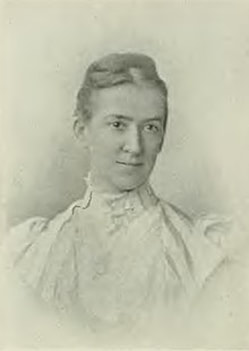 Florence Trail Florence Trail Florence Trail (September 1, 1854 - April 21, 1944) was an American educator and author. Though she belonged to one of the wealthiest families of Maryland, she believed in the doctrine of self-support and left home to engage in teaching, first in Kentucky and North Carolina, and afterward in New York and Connecticut. On returning from an extended tour of Europe, she published My Journal in Foreign Lands (New York, 1885). This was followed by other volumes, among them: Studies in Criticism (New York, 1888), Under the Second Renaissance (Buffalo, 1894), and A History of Italian Literature. Florence Trail was born in Frederick, Maryland, September 1, 1854. She was the second daughter of Charles Edward Trail and Ariana McElfresh. Her siblings included, Anna M. Harding, Henry Trail, Bertha Trail, and Charles Bayard Trail. A severe illness at 10 years of age left her with impaired hearing. Her quickness of perception and efforts to divine what others meant to say caused them to forget, or not to realize, that her hearing was not equal to their own. She graduated first in her class in the Frederick Female Seminary, in 1872, having studied mental and moral philosophy, evidences of Christianity, modern history, mythology, rhetoric and composition. The following year, she graduated with highest honors from Mt. Vernon Institute, Baltimore. After teaching for four years at the Frederick Female Seminary, she left home for a position in Daughters College, Harrodsburg, Kentucky, where she afterwards taught Latin, French, art and music. In Harrodsburg, as well as in Tarboro, North Carolina, where she taught music in 1887 and 1888, and in Miss Hogarth's school, Goshen, New York, where she acted as substitute for some weeks in January, 1890, she made many devoted friends and did superior work as a teacher. In 1883, she visited Europe, and afterwards published an account of her travels under the title My Journal in Foreign Lands (New York, 1885), which passed through two editions and served as a guide-book. Trail has been a member of the Society to Encourage Studies at Home for 14 years, five as a student of modern history, French literature, Shakespeare and art, and nine as a teacher of ancient history. Her essay on "Prehistoric Greece as we find it in the Poems of Homer " was read before that society at the annual reunion at Miss Ticknor's, in Boston, Massachusetts, in June, 1883. Trail was an accomplished musician, having studied music in the seminary in Frederick, in the Peabody Conservatory in Baltimore, and in Chickering Hall, New York. She often appeared in concerts with success. Though gifted in many ways, she was best known as a writer. Her best work was, "Studies in Criticism" (New York, 1888). She published over 100 articles in prose and verse, many without signature, in newspapers and magazines. Inheriting a taste for the languages, she was a fine translator and read German, Italian, Latin and French. She died April 21, 1944. Florence decided to dedicate her life to the suffrage cause after attending a 1910 meeting where she listened to Edith Houghton Hooker, the president of the Just Government League. She embarked on her new mission by helping found a chapter of the Just Government League in her hometown, Frederick, and by serving as its first president. Florence's mother Ariana, sister Bertha and niece, Grace, all played significant roles in the Frederick Suffrage Movement. 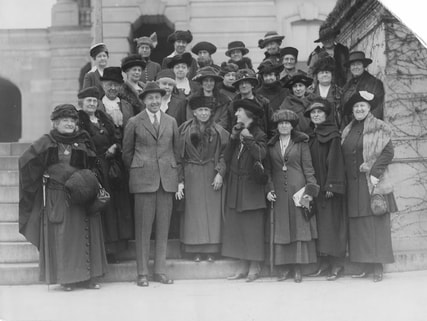 Maryland Suffragettes in Washington (ca. 1920) Maryland Suffragettes in Washington (ca. 1920) Maryland Suffrage historian and researcher Amy Rosenkrans gleaned much on the Trail sisters. She wrote, "Florence along with her mother and sister Bertha, were elected to the Board of Directors for the Frederick County Just Government League (JGL) in 1911. The directors took turns hosting the monthly meetings, many of which took place at the Woman’s College, later Hood College. At those meetings, one of the sisters would often give a lecture on pertinent suffrage topics. When the Frederick chapter changed their governing structure to a more traditional format of officers, Florence was elected President. As such, she chaired most meetings and even hosted them at her elegant home. In addition to chairing meetings and working to garner support in Frederick, both Florence and Bertha participated in suffrage activities at the state and national levels. Florence represented the county at the 1913 Suffrage March in Washington DC, held on the eve of Woodrow Wilson’s presidential inauguration, and at state Just Government League conventions. In 1915, she was selected to represent Maryland at the National American Woman Suffrage Association Convention. Bertha ended up attending the meeting in her stead and brought back information about the convention to the Frederick chapter as well as to the Frederick Female Seminary Alumni Association Meeting, of which both she and Florence were members. When the Frederick County JGL chapter dissolved in 1917 and became the Frederick County Woman Suffrage League, Florence was once again elected president. The next year, she was elected to an office in the MD Woman Suffrage League. Despite her state level position, Florence continued to support the movement in Frederick, planning and hosting meetings such as a 1919 Suffrage Rally on the Frederick Courthouse steps. The Trail Sisters worked diligently to win the vote for Maryland’s women. Their writing, speeches and constant activism did not end when the battle was won. Both sisters continued to be active in the community. Bertha was elected President of the Frederick County Republican Club in 1920 where she spearheaded the registration of new women voters." Florence's sister, Bertha Trail, also made an incredible impact on voting here in Frederick as has already been shown. She helped register hundreds of women and organized the local Republican Party for women. Bertha was an amazing mover and shaker here in town and was responsible for bringing several benevolent endeavors to life. 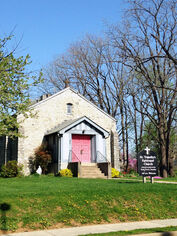 Part of her surviving legacy is St. Timothy's Chapel on Franklin Street, across the street from the main entrance to the Frederick Fairgrounds. This entity began as a Mission Sunday School about 1897, established by Bertha Trail and her brother, Henry within the Schleysville subdivision, then just beyond the city boundary. The frame Mission Sunday School building was constructed in 1900, according to its cornerstone. In the History of All Saints ' Parish, Second Edition, the authors note that "one of Miss Bertha's objectives was to tum the attention of the local residents from the neighborhood saloon to St. Timothy's." The present, stone structure was built in 1924. The fore-mentioned Anna Mary Trail Harding was a leader of the suffrage movement in Philadelphia. She would be born and raised in Frederick, but lived elsewhere on account of the work of her husband, Rev. John B. Harding, an Episcopal minister. When she was widowed in the early 1920s, she made the decision to move back to her hometown. There are many others that helped lead the charge for women's equality in voting that are buried here at Mount Olivet. I have simply included their obituaries and gravesites here, but please know that each of their life journeys are ample fodder for individual "Stories in Stone" on their own. Along with the Trail sisters, these ladies were among Frederick's first women to vote in November 1920. Elizabeth (Pettingall) McDannell January 1, 1858-March 13, 1930 Area C/Lot 133 Mary Ella (Stoner) Willard July 31, 1876-December 28, 1951 Area AA/Lot 133 Mary Lavinia (Floyd) Urner February 16, 1872-December 2, 1956 Area AA/Lot 117 Gertrude (Harner) Apple December 12, 1868, 1876-August 9, 1953 Area CC/Lot 27 For more research on this topic, please check out these sites by Preservation Maryland and the Maryland Historical Trust for more research on our state's rich suffrage story.
https://www.preservationmaryland.org/programs/six-to-fix/projects/current-projects/womens-suffrage/ https://mdhistoricaltrust.wordpress.com/2017/12/12/a-story-map-of-womens-suffrage-in-maryland/
0 Comments
Leave a Reply. |
STORIES
|
Archives
July 2024
June 2024
May 2024
April 2024
March 2024
February 2024
January 2024
December 2023
November 2023
September 2023
August 2023
July 2023
June 2023
May 2023
April 2023
March 2023
February 2023
January 2023
December 2022
November 2022
October 2022
September 2022
August 2022
July 2022
June 2022
May 2022
April 2022
March 2022
February 2022
January 2022
December 2021
November 2021
October 2021
September 2021
August 2021
July 2021
June 2021
May 2021
April 2021
March 2021
February 2021
January 2021
December 2020
November 2020
October 2020
September 2020
August 2020
July 2020
June 2020
May 2020
April 2020
March 2020
February 2020
January 2020
December 2019
November 2019
October 2019
September 2019
August 2019
July 2019
June 2019
May 2019
April 2019
March 2019
February 2019
January 2019
December 2018
November 2018
October 2018
September 2018
August 2018
July 2018
June 2018
May 2018
April 2018
March 2018
February 2018
January 2018
December 2017
November 2017
October 2017
September 2017
August 2017
July 2017
June 2017
May 2017
April 2017
March 2017
February 2017
January 2017
December 2016
November 2016

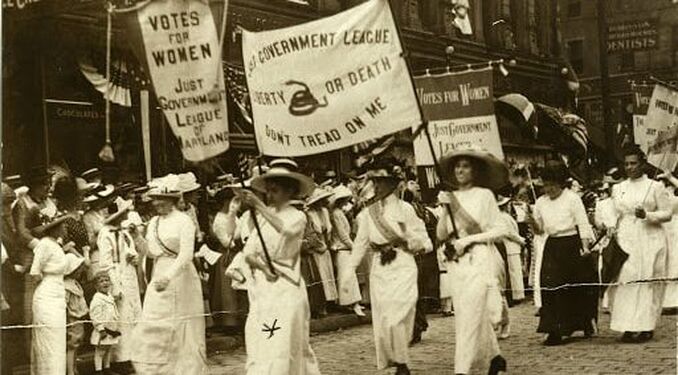
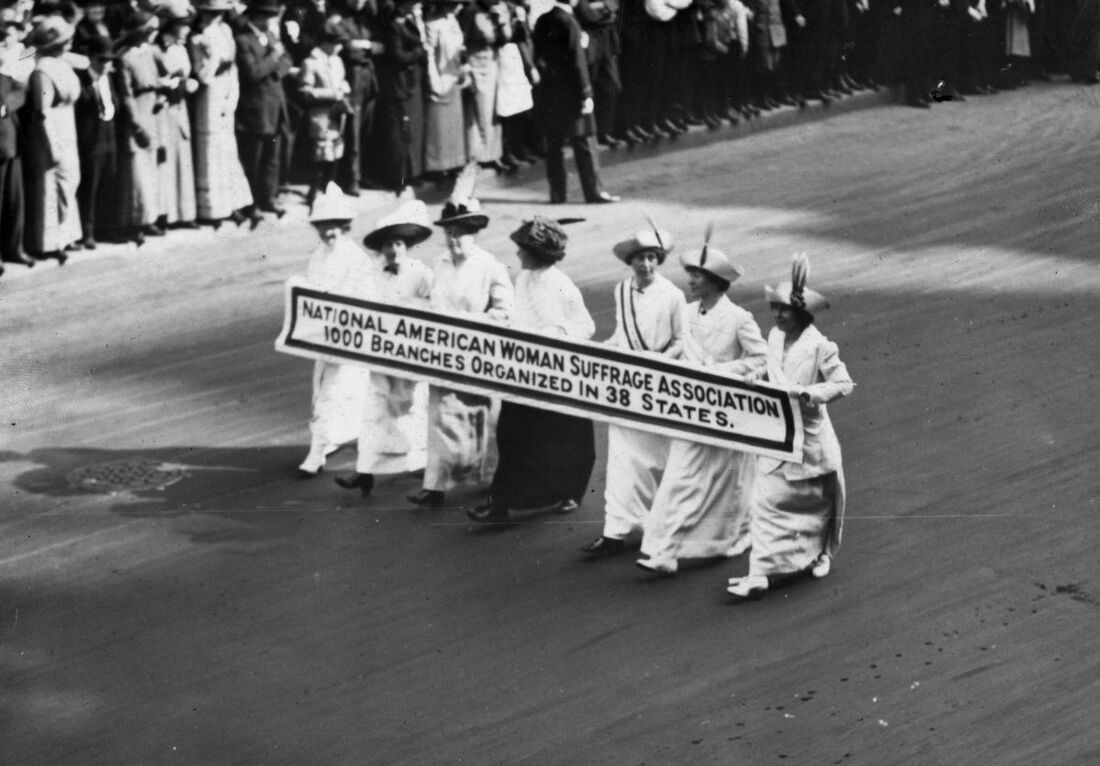
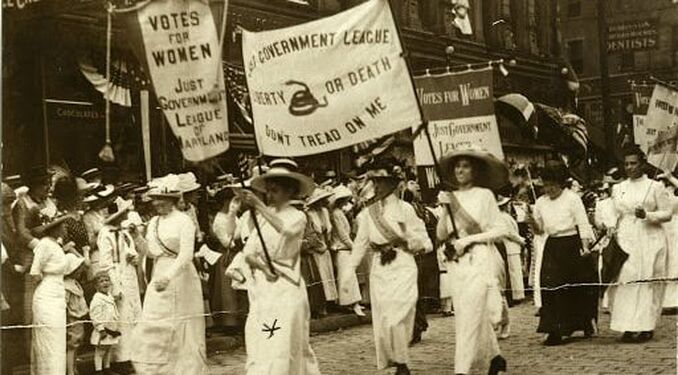
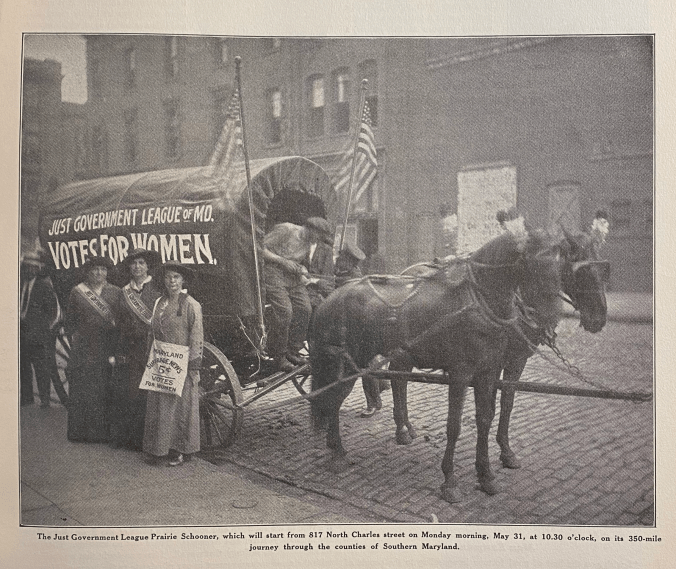
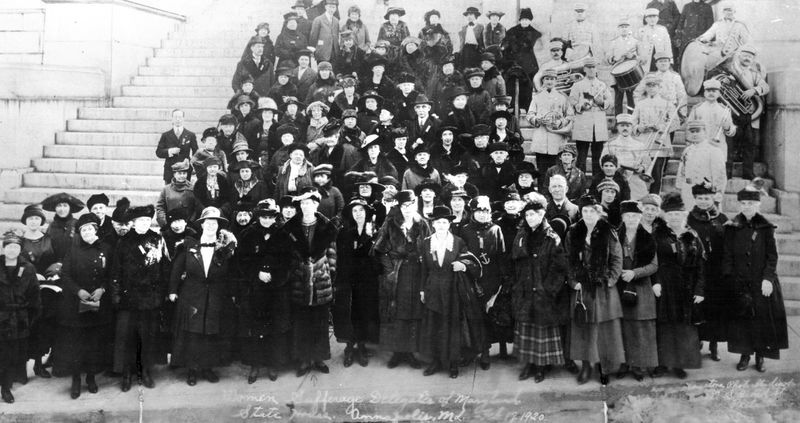
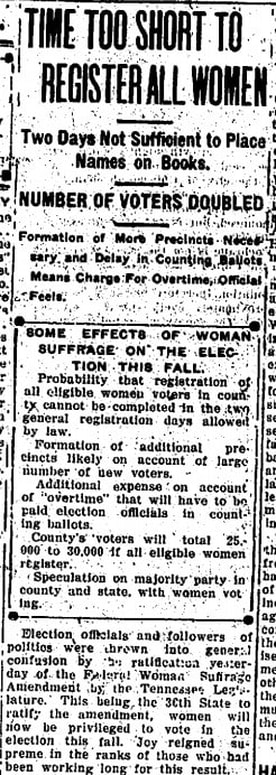

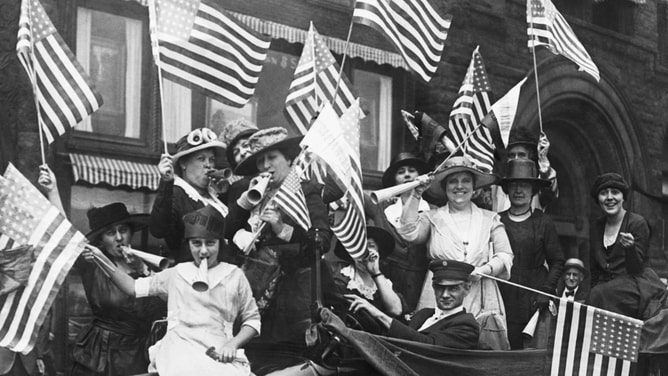
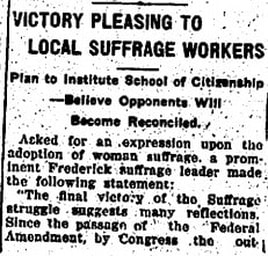
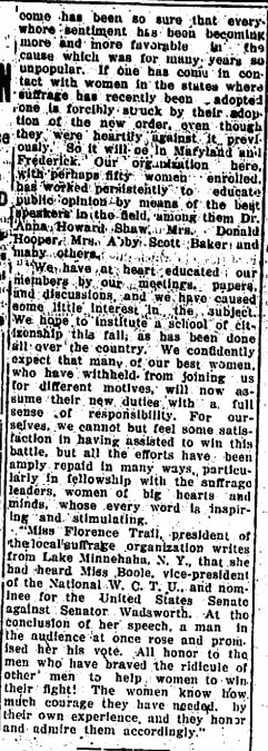
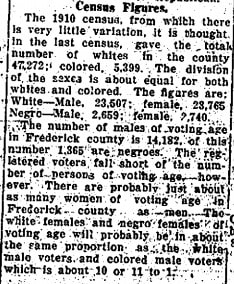
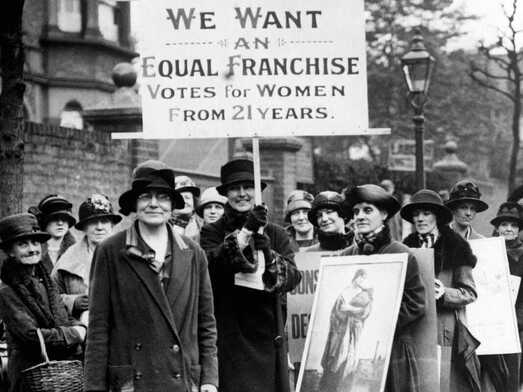
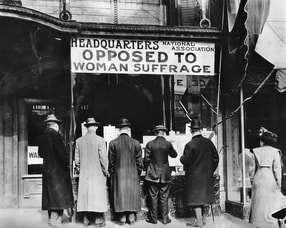
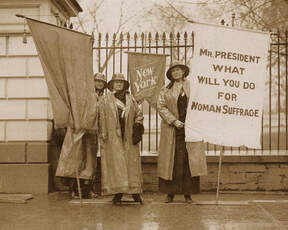

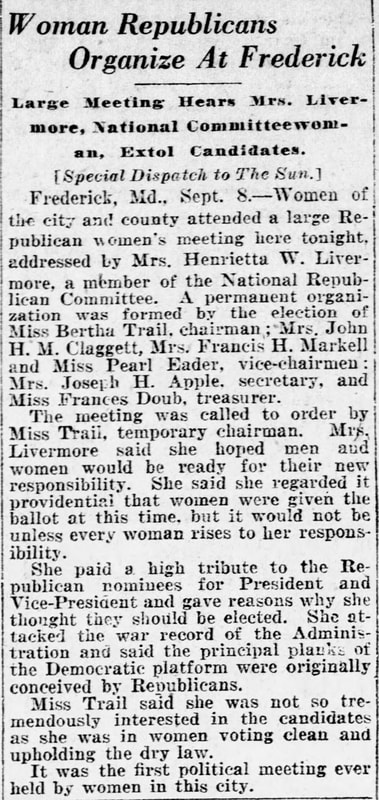
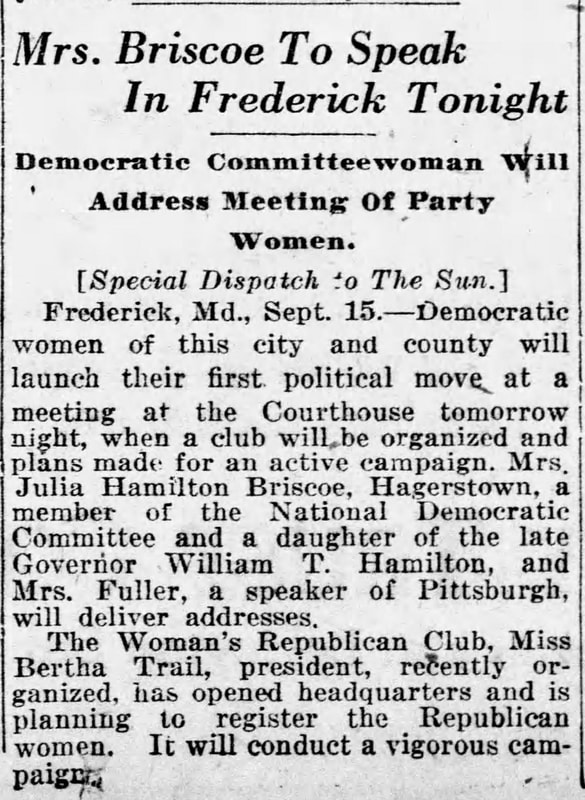
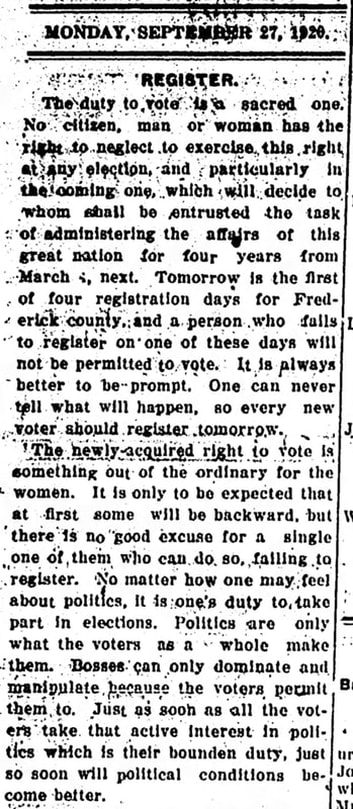
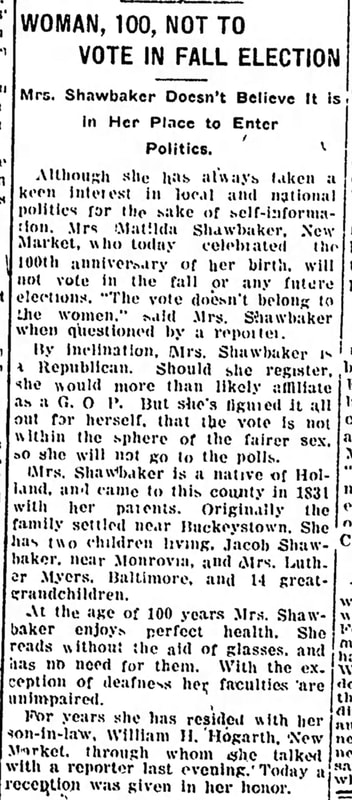
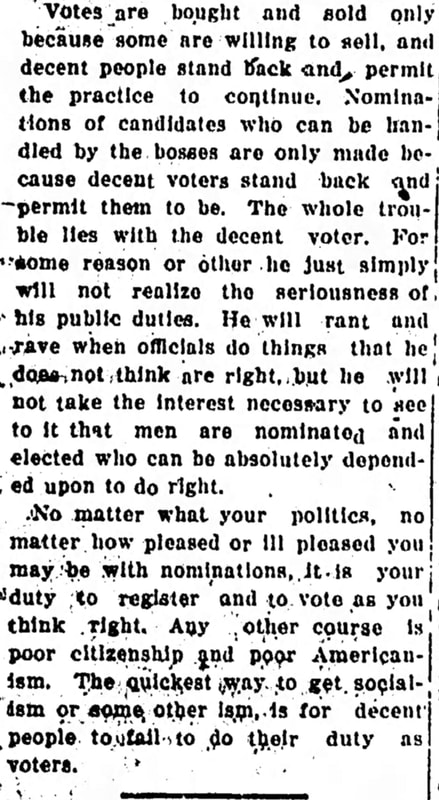
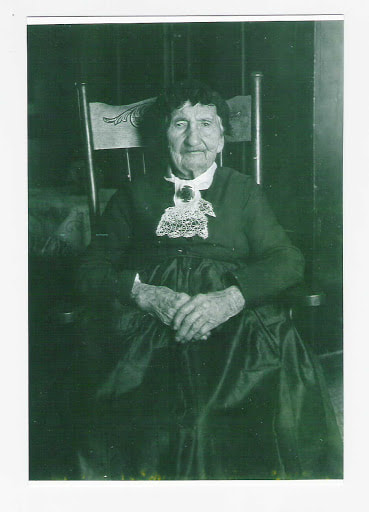
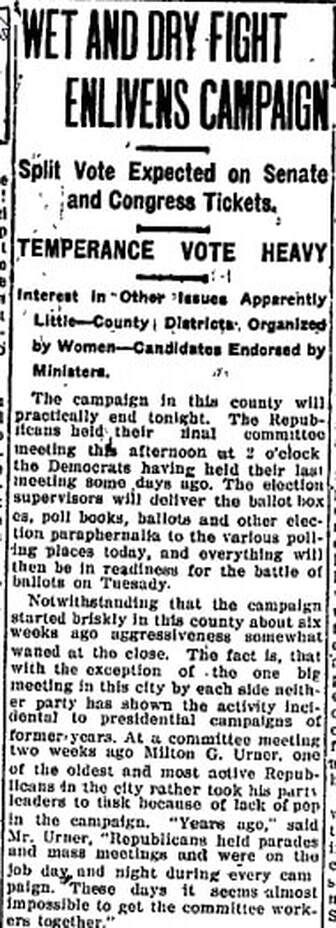
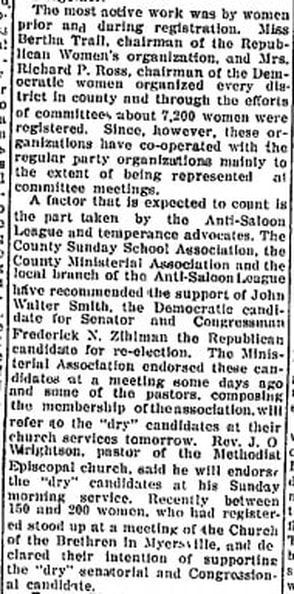
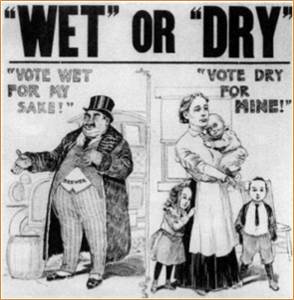

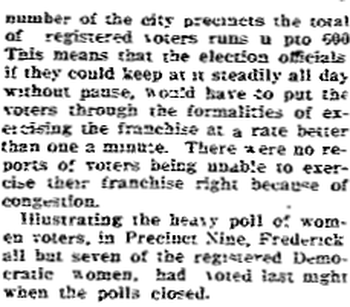
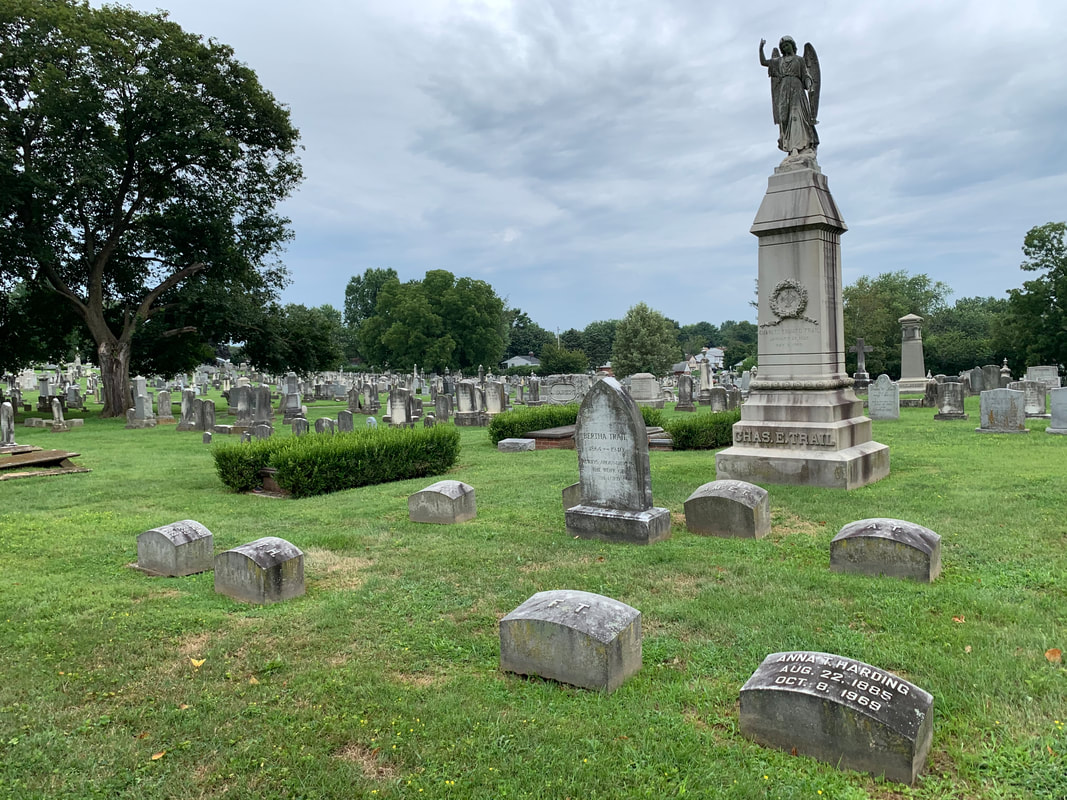
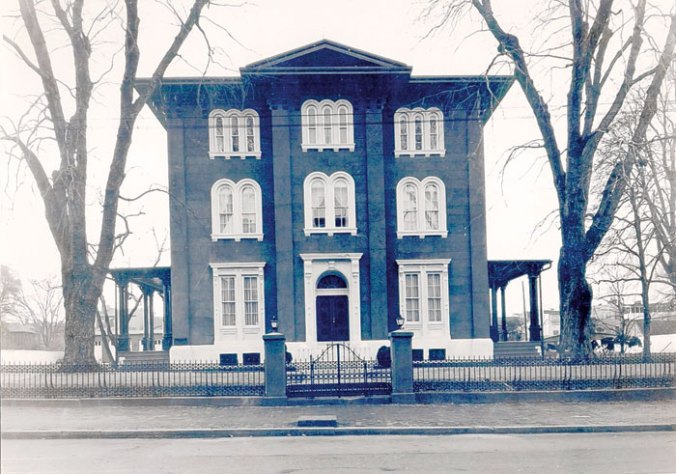

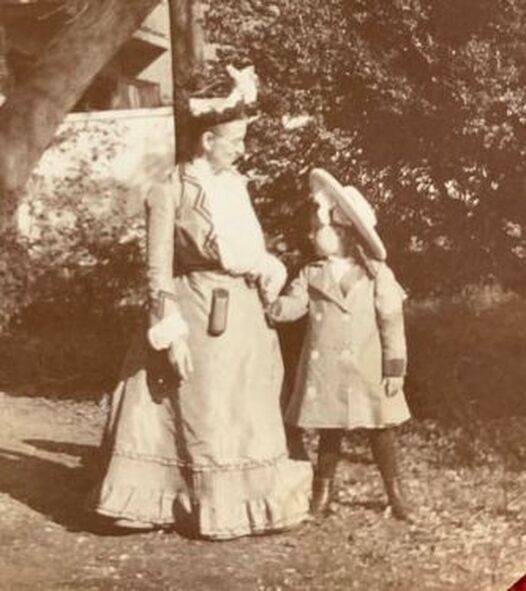
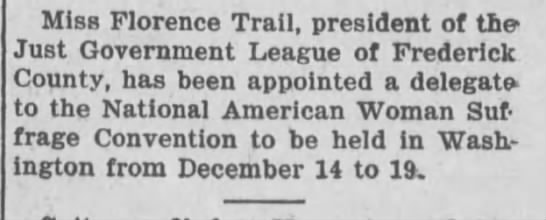
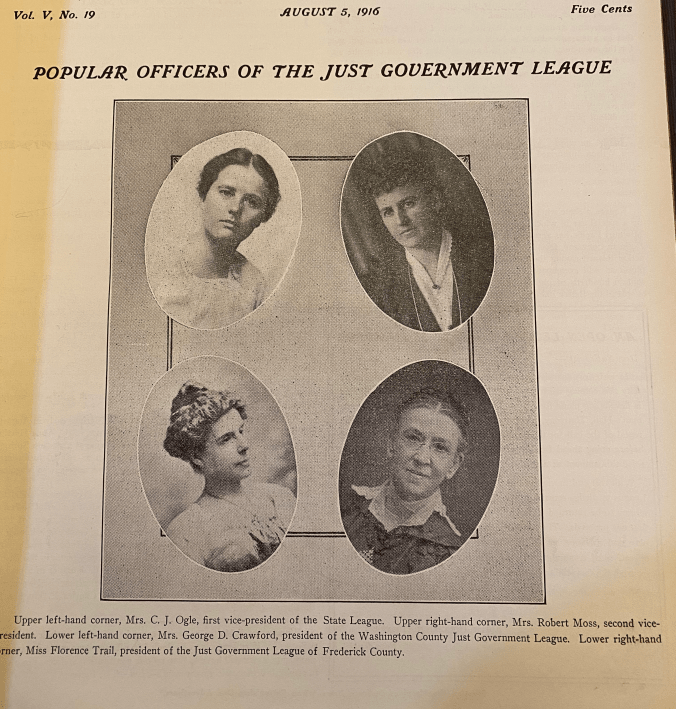


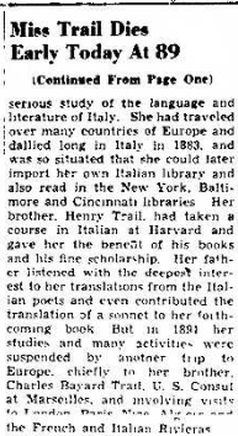
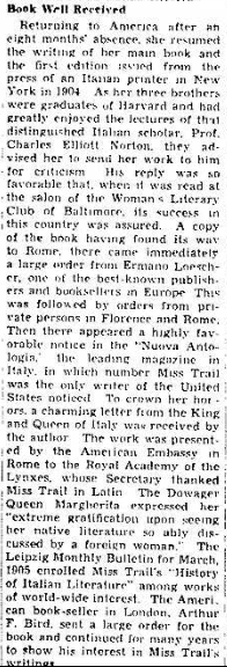
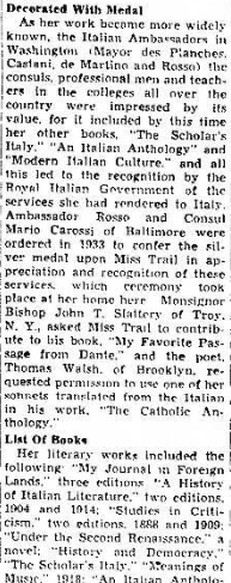
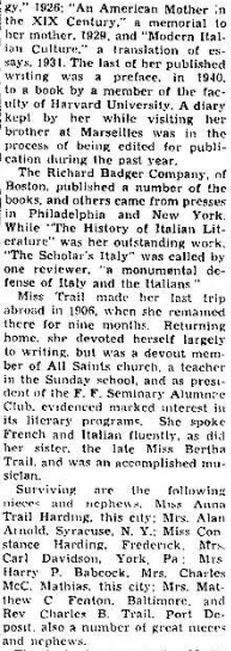
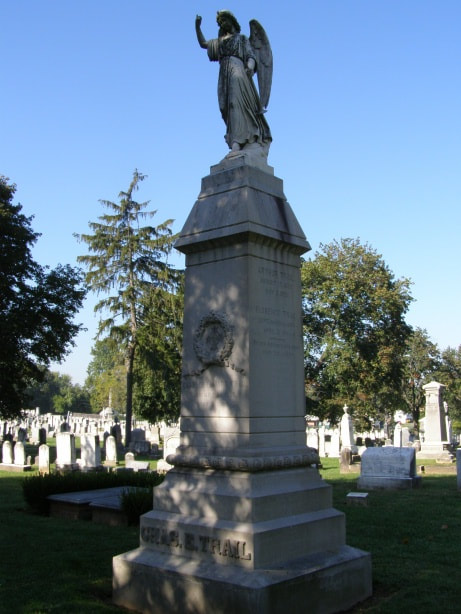
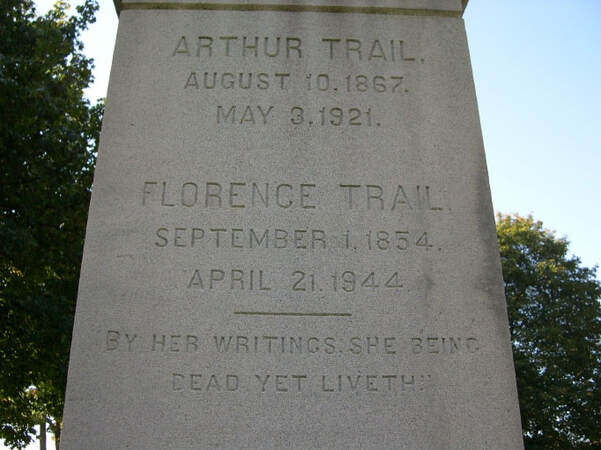
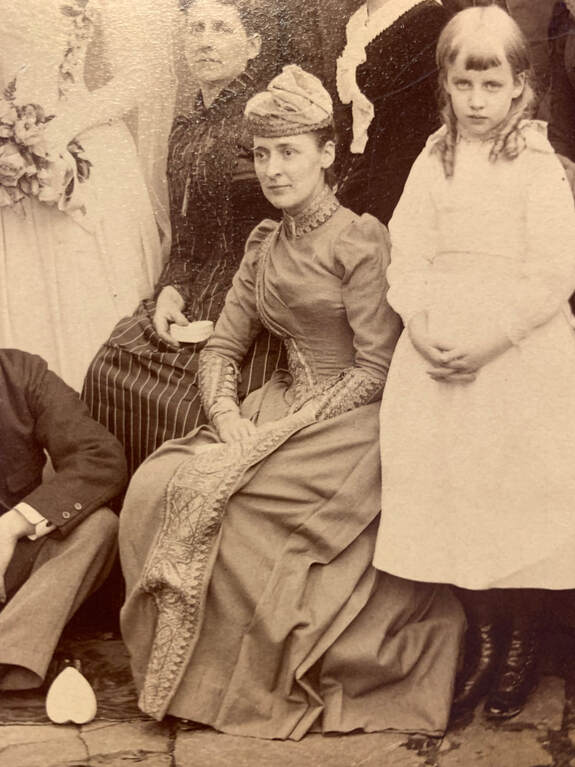
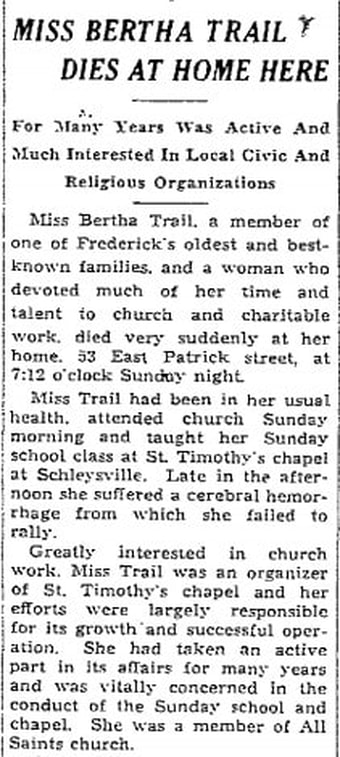
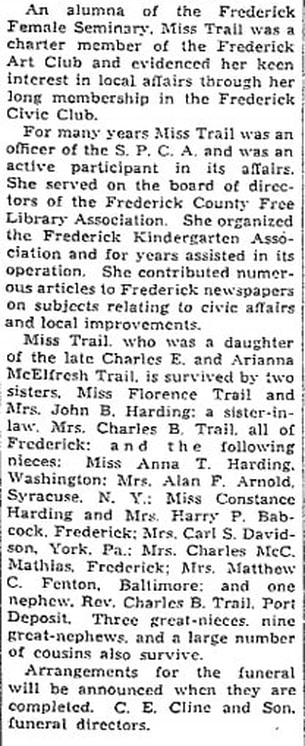

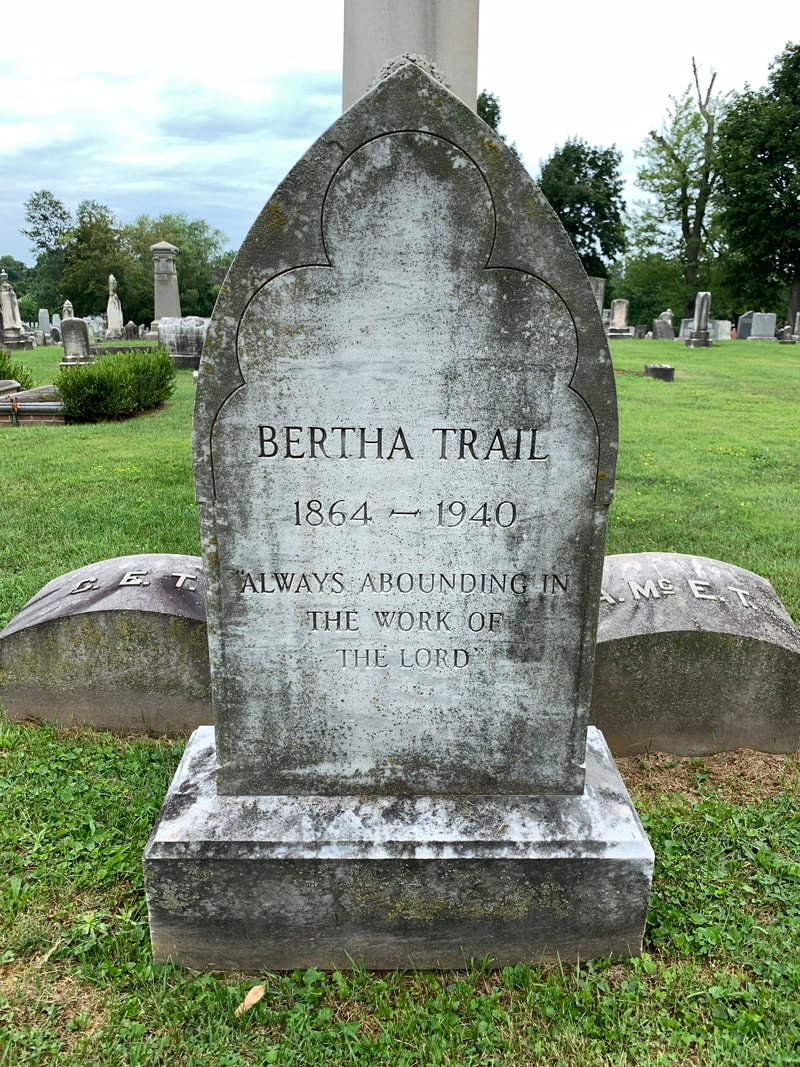
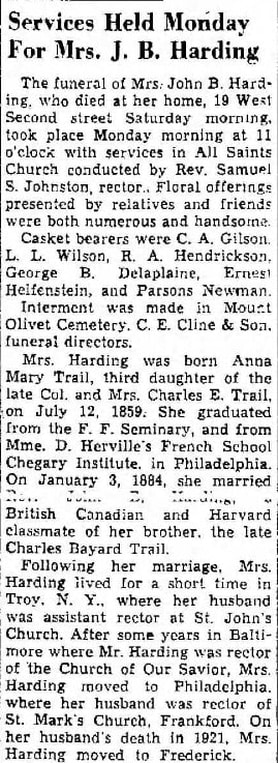
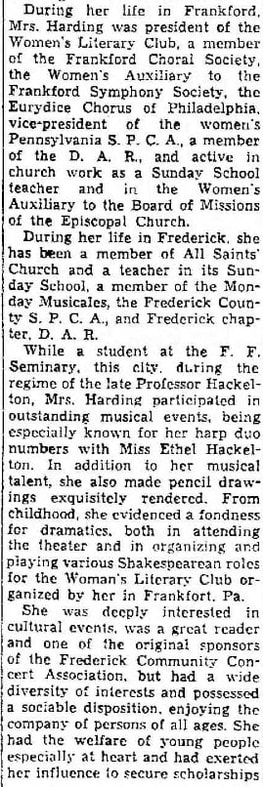
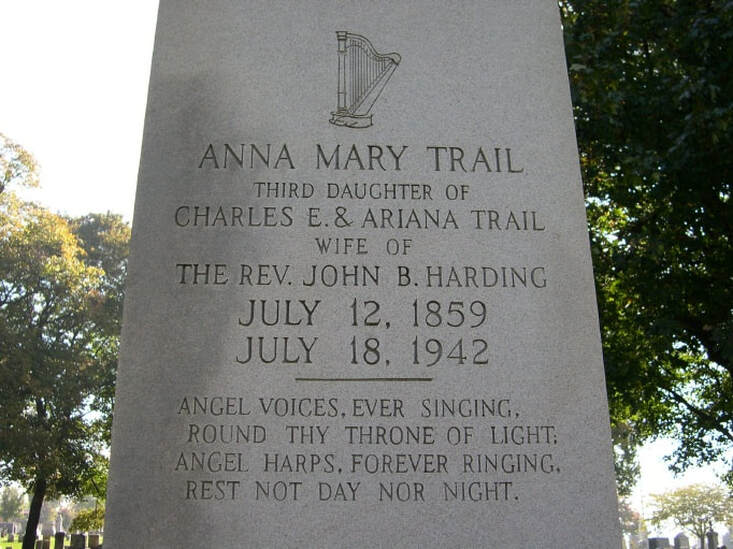
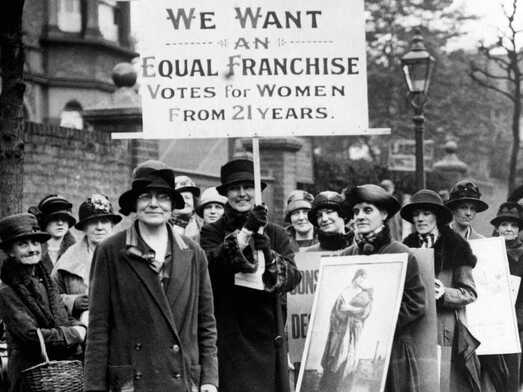
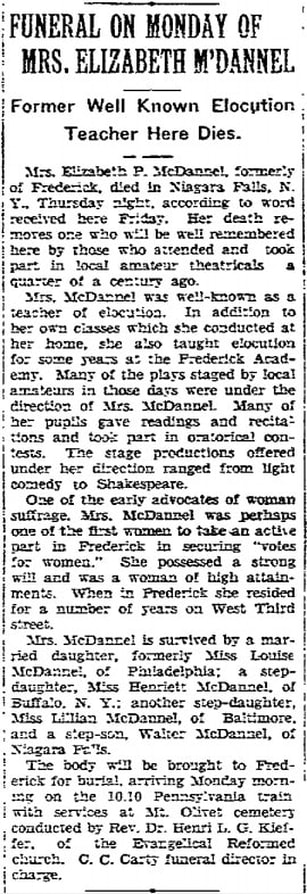
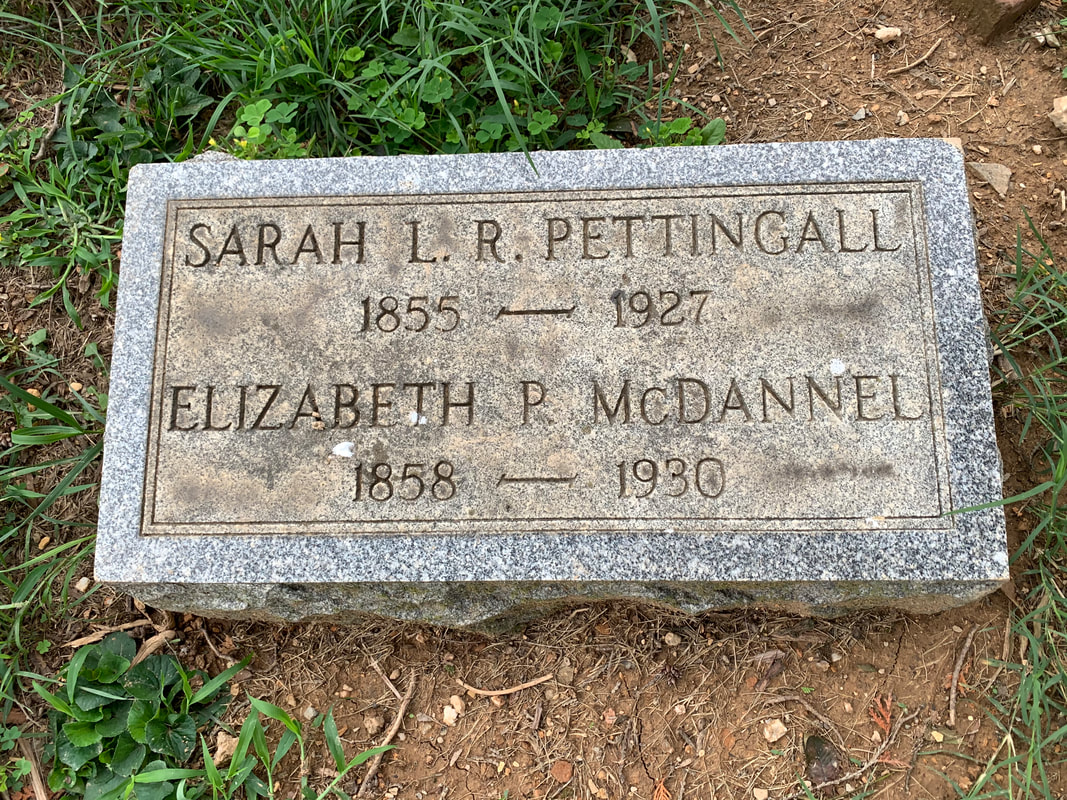
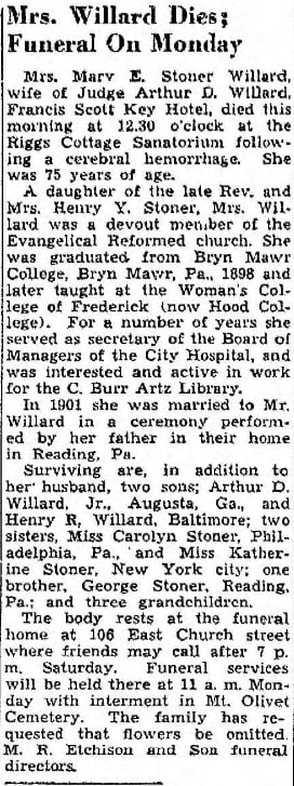
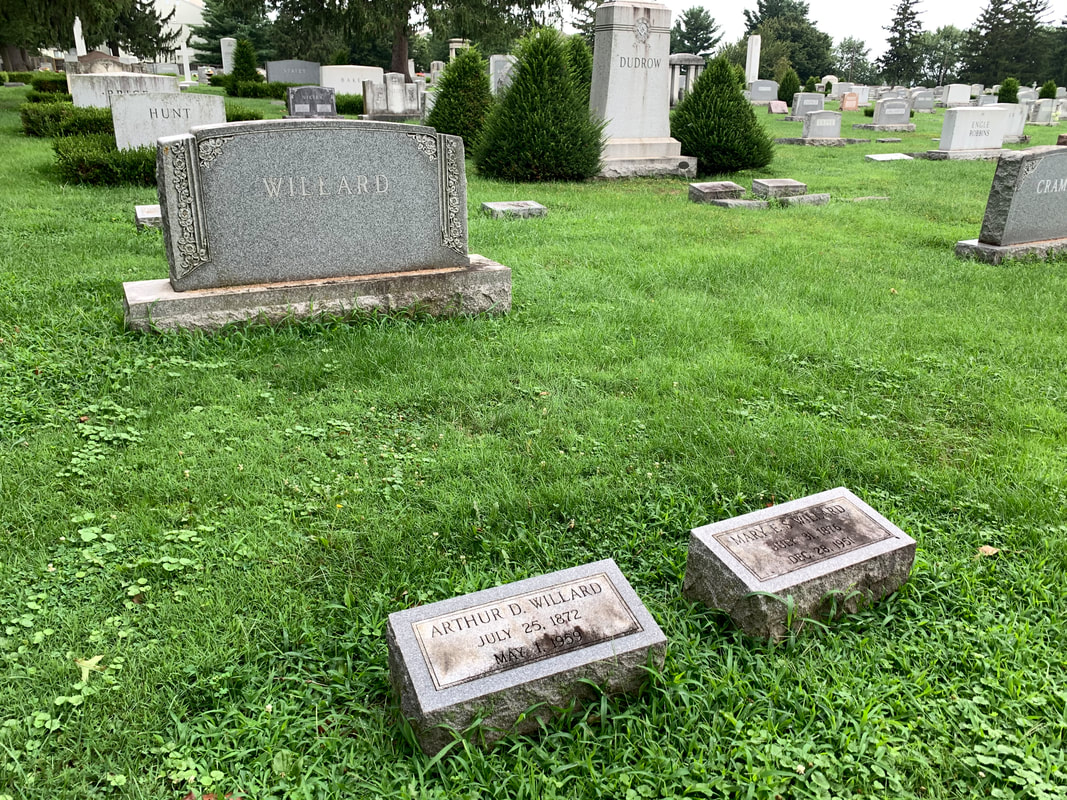
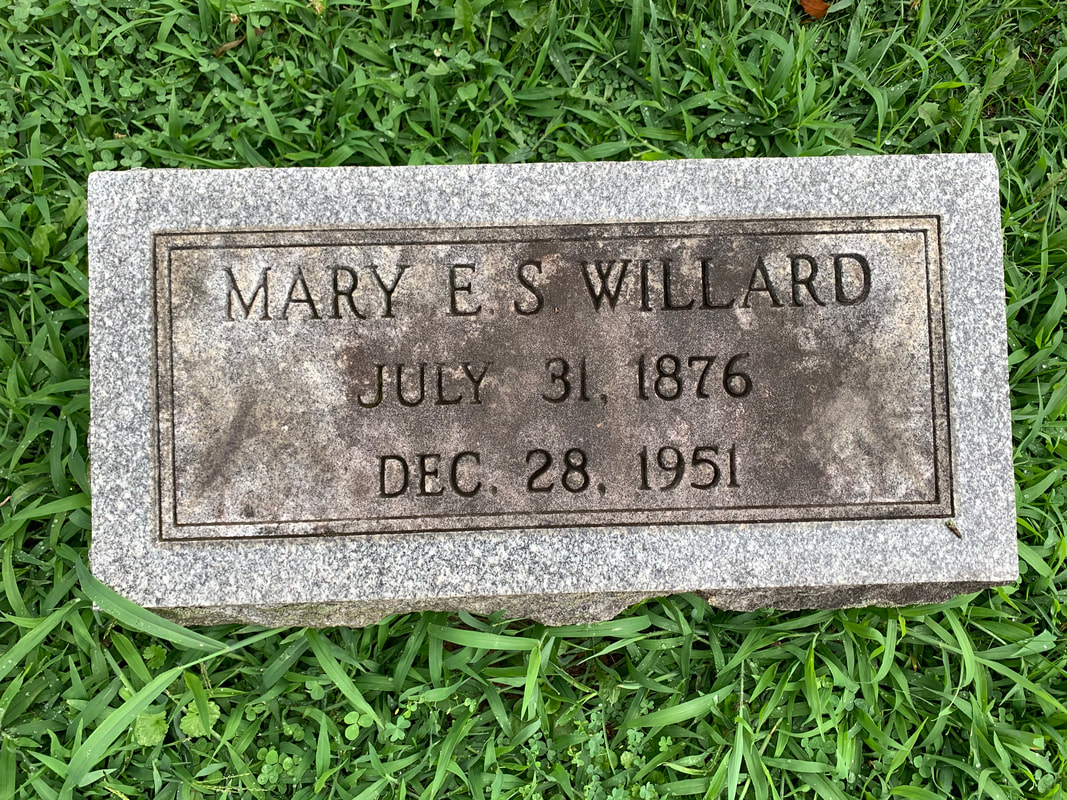
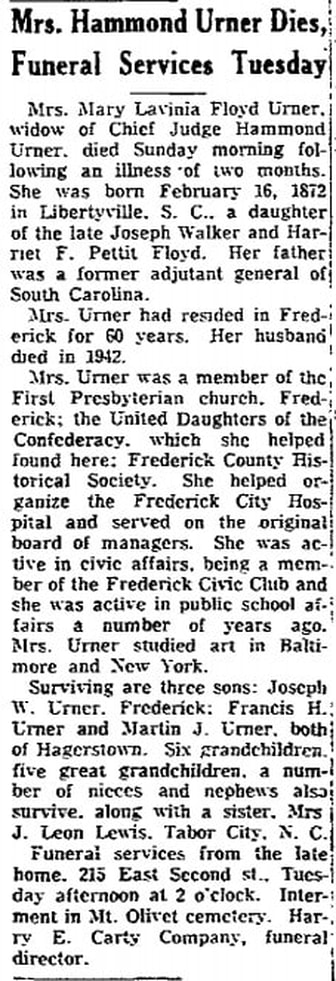
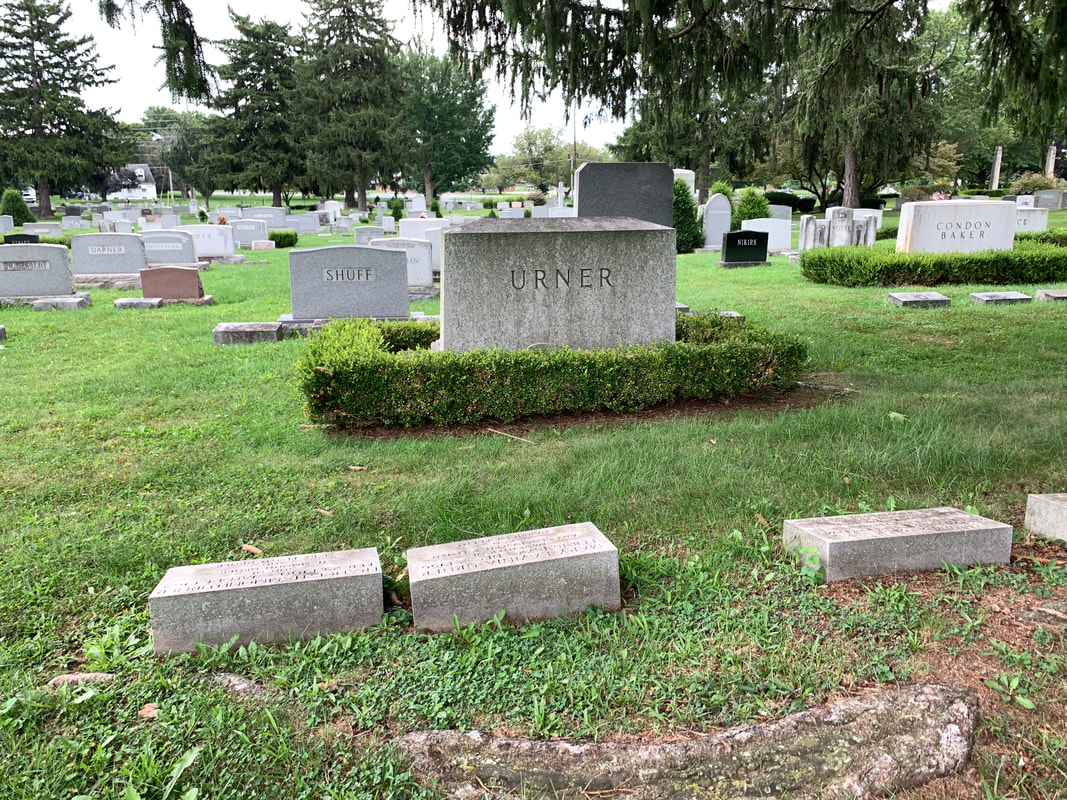
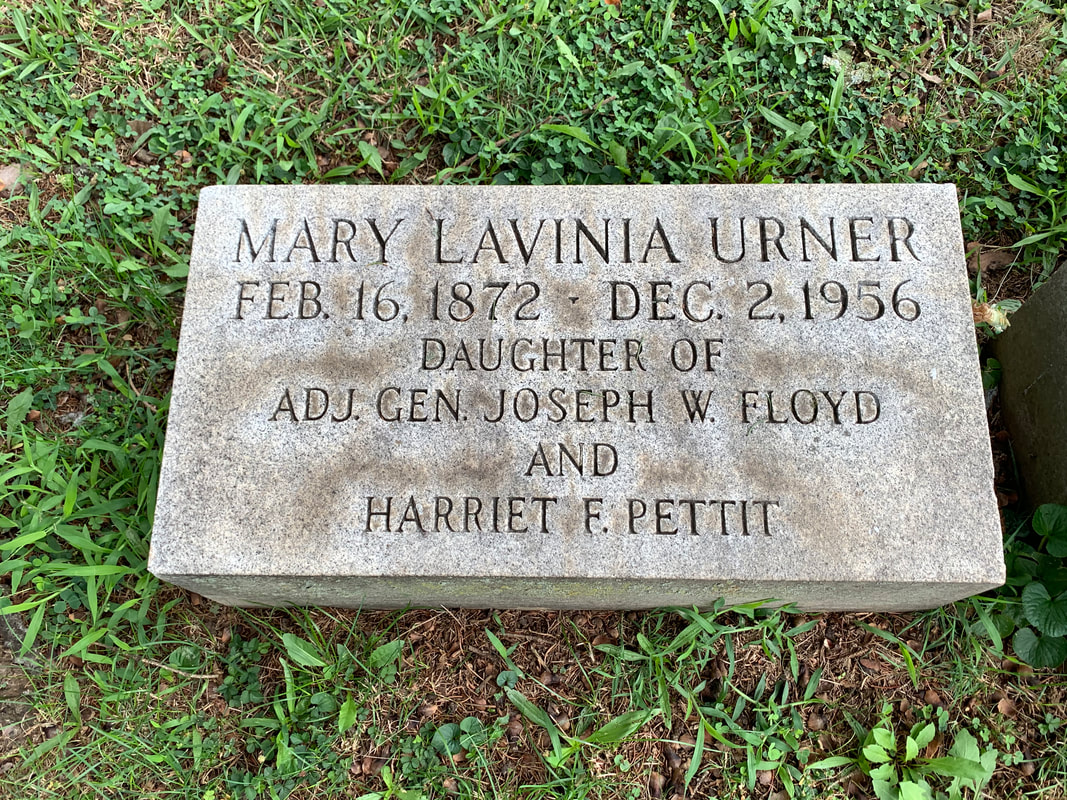

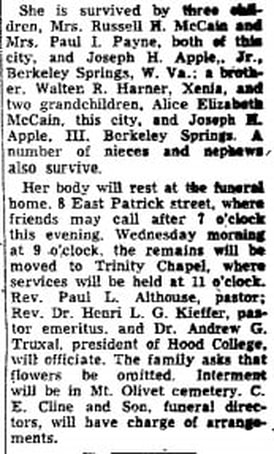
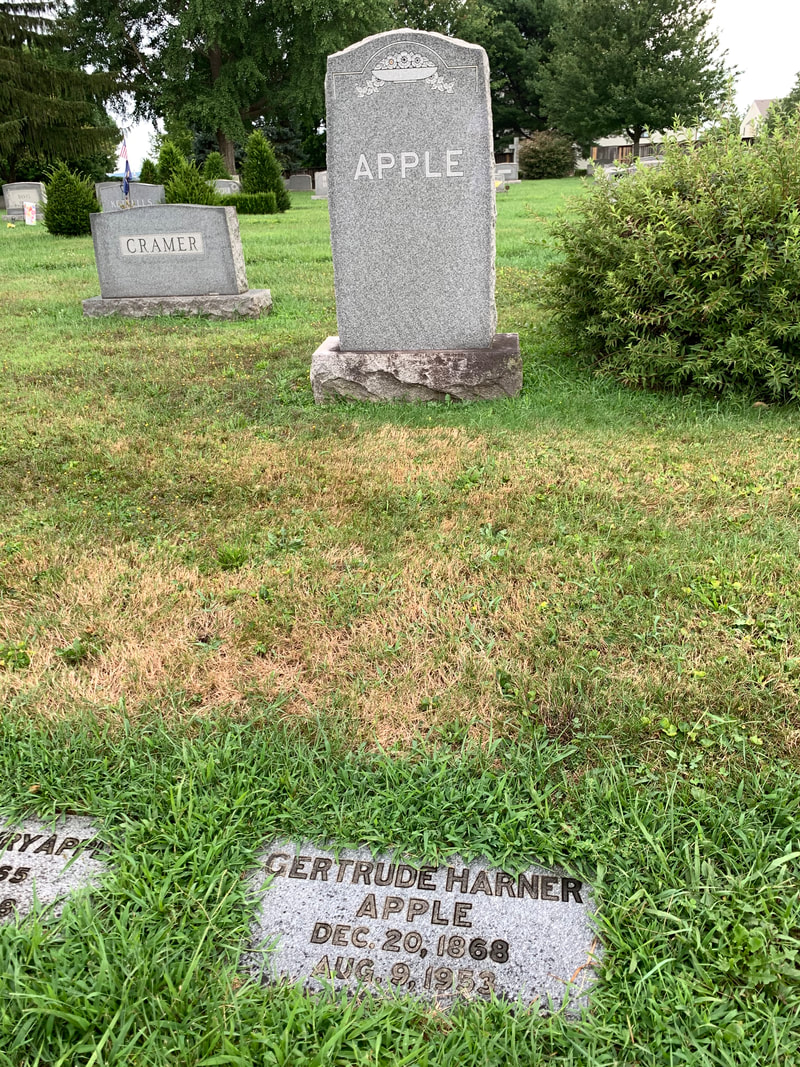
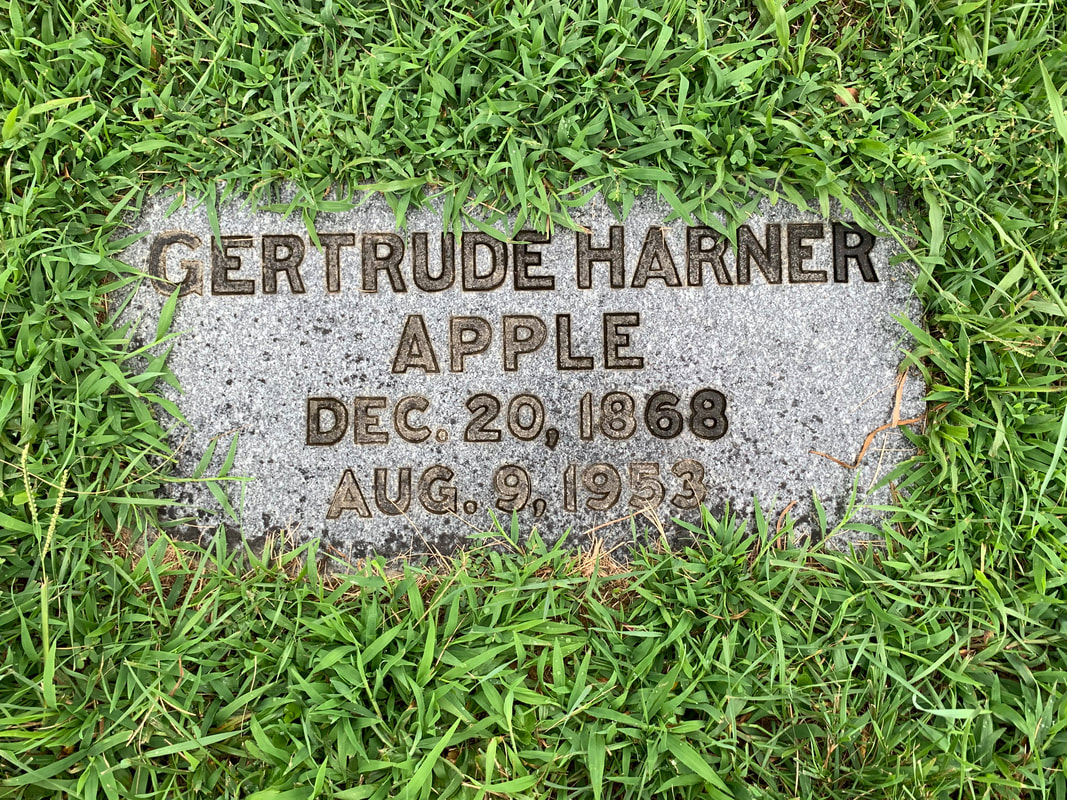
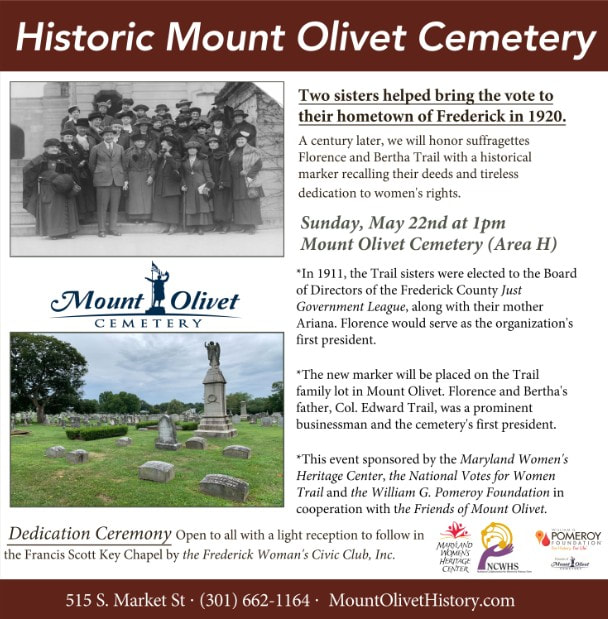
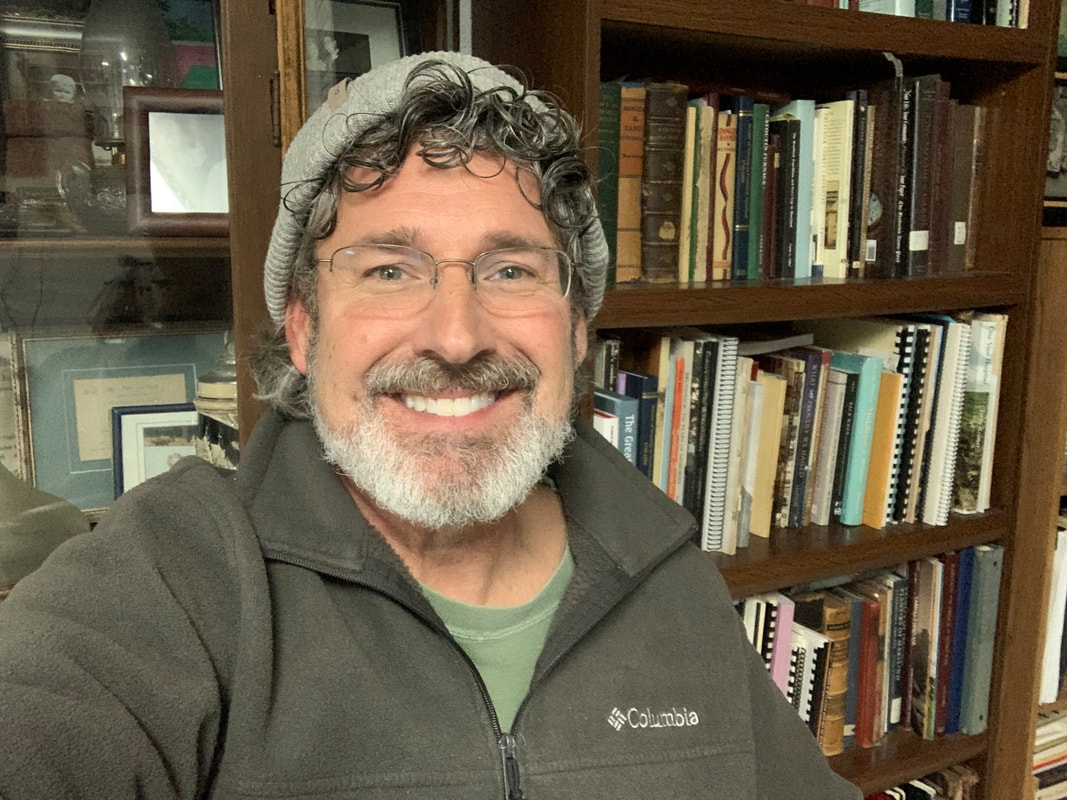
 RSS Feed
RSS Feed